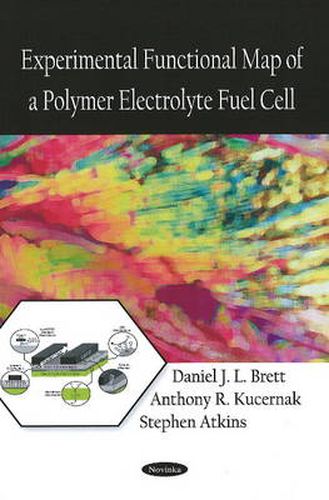Readings Newsletter
Become a Readings Member to make your shopping experience even easier.
Sign in or sign up for free!
You’re not far away from qualifying for FREE standard shipping within Australia
You’ve qualified for FREE standard shipping within Australia
The cart is loading…






Fuel cell performance is determined by the complex interplay of mass transport, energy transfer and electrochemical processes. The convolution of these processes leads to spatial heterogeneity in the way that fuel cells perform, particularly due to reactant consumption, water management and the design of fluid-flow plates. It is therefore unlikely that any bulk measurement made on a fuel cell will represent performance at all parts of the cell. The ability to make spatially resolved measurements in a fuel cell provides one of the most useful ways in which to monitor and optimise performance. This book reviews the range of in situ techniques being used to study fuel cells and describes the use of novel experimental techniques that the authors have used to develop an experimental functional map of polymer electrolyte fuel cell (PEFC) performance. These techniques include the mapping of current density, electrochemical impedance, electrolyte conductivity, contact resistance and CO poisoning distribution within working PEFCs, as well as mapping the flow of reactant in gas channels using laser Doppler anemometry (LDA). The combination of these techniques, applied across a range of fuel cell operating conditions allows a unique picture of the internal workings of PEFCs to be obtained and has been used to validate both numerical and analytical models.
$9.00 standard shipping within Australia
FREE standard shipping within Australia for orders over $100.00
Express & International shipping calculated at checkout
Fuel cell performance is determined by the complex interplay of mass transport, energy transfer and electrochemical processes. The convolution of these processes leads to spatial heterogeneity in the way that fuel cells perform, particularly due to reactant consumption, water management and the design of fluid-flow plates. It is therefore unlikely that any bulk measurement made on a fuel cell will represent performance at all parts of the cell. The ability to make spatially resolved measurements in a fuel cell provides one of the most useful ways in which to monitor and optimise performance. This book reviews the range of in situ techniques being used to study fuel cells and describes the use of novel experimental techniques that the authors have used to develop an experimental functional map of polymer electrolyte fuel cell (PEFC) performance. These techniques include the mapping of current density, electrochemical impedance, electrolyte conductivity, contact resistance and CO poisoning distribution within working PEFCs, as well as mapping the flow of reactant in gas channels using laser Doppler anemometry (LDA). The combination of these techniques, applied across a range of fuel cell operating conditions allows a unique picture of the internal workings of PEFCs to be obtained and has been used to validate both numerical and analytical models.